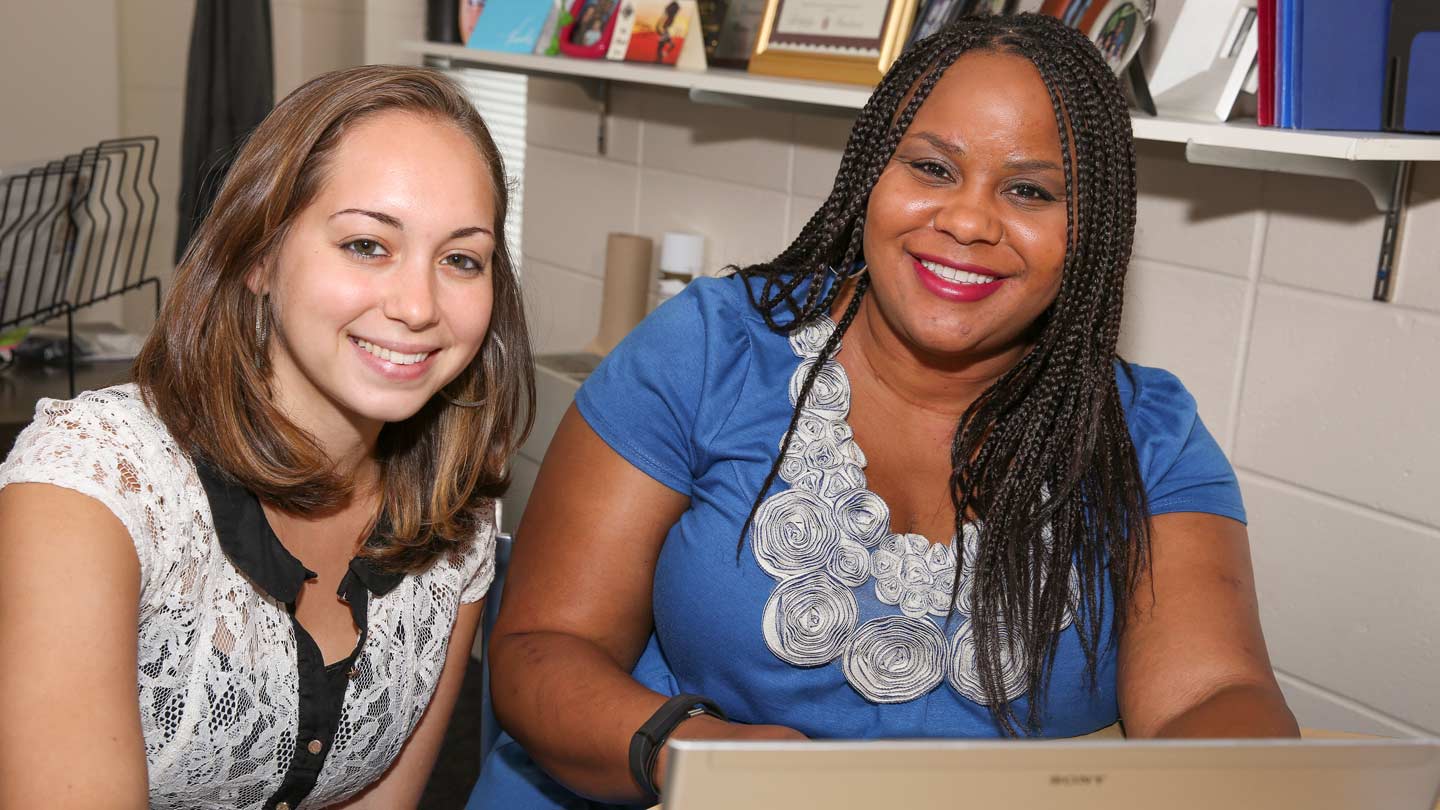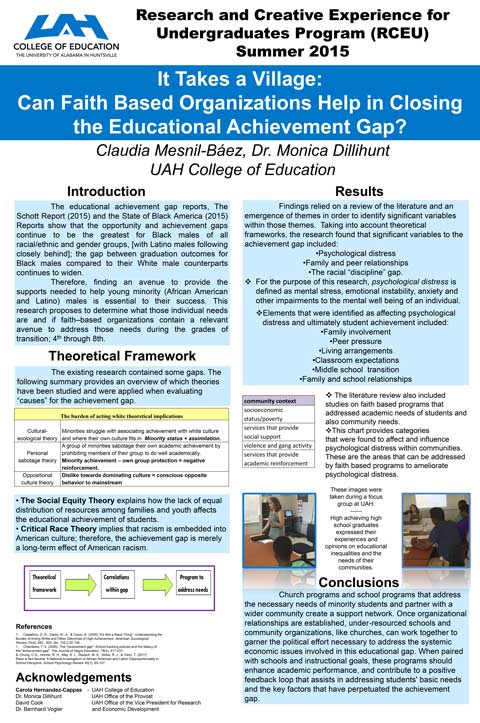UAH research project focuses on narrowing nation’s achievement gap

Associate professor Dr. Monica Dillihunt and student Claudia Mesnil are researching how faith-based organizations can help narrow the achievement gap.
Since the late 1960s, Americans have been aware of a growing achievement gap between low-income minority students and their middle-class white counterparts. Yet despite the implementation of education reform initiatives to address this gap over the ensuing four decades, it remains just as pervasive today.
"The gap for African American and Latino males is huge and has been over time," says Dr. Monica Dillihunt, an associate professor in the College of Education at The University of Alabama in Huntsville (UAH). "And while their scores are improving, so are the scores of their white counterparts. So the gap is still the same."
It is important for all Americans to be aware of how deeply this achievement gap can affect society; if we do not educate the future’s youth, negative consequences can follow.
Reasoning that a new approach was warranted, she decided to direct her research toward whether or not faith-based organizations could provide needed supplementary support and services not otherwise covered by the state. "Many already offer help - one might have a good food program, another a good tutoring program," she says. "But there's no one specific program in place that deals with everything that's needed. So I wanted to look at the skill sets out there and see how to bring them all together."
To help her with the task, Dr. Dillihunt submitted a proposal to UAH's Research & Creative Experiences for Undergraduates (RCEU) Program, which provides funding to hire student research assistants. The project drew the attention of UAH senior elementary education major Claudia Mesnil, and soon after applying, she was selected for the position. "I had been wanting to do research for a long time and I am very passionate about the education field so it seemed perfect," says Mesnil, who is a bilingual native of Puerto Rico. "Being a Latina has also sparked in me a desire to help other minorities."
The pair began with a review of the literature, hoping to gain a better understanding of the theoretical framework underlying the achievement gap. What they found was a wide spectrum of influencing factors, from unequal access to resources to minority students sabotaging their own success in their struggle to assimilate into the dominant culture. These challenges would then often result in psychological distress, leading to poor academic performance and an increased likelihood that the student will drop out all together.
"Schools have limited resources, and teachers aren't trained to deal with the emotional or psychological aspects; they're trained to deal with the educational aspects," says Dr. Dillihunt. "But we know from research that men are typically the breadwinners, so if they don't have the education and skills to advance, then everything breaks down from there."
But while some states have government-funded programs in place to address these issues, most do not. And that, says Mesnil, is exactly where faith-based organizations can step in and provide solutions. "If these organizations can come together with schools to address students' social, physical, and academic needs, there is a higher chance that students can overcome the gap in opportunity and achievement that exists."
The challenge, however, is ensuring that any partnership upholds the constitutionally mandated separation of church and state. "Public schools are hesitant to accept help from help from faith-based organizations because of that strict separation, so it's about making sure the goal of the program is specifically outlined so that there's no suggestion of influencing the students' religious beliefs," says Dr. Dillihunt. "That's where policy change comes in."
With their research now complete, the women are planning to present their findings at the annual meeting of the American Educational Research Association in addition to publishing them later this year. The ultimate goal, of course, would be for those findings to be put into practice - something that Dr. Dillihunt hopes to one day see. "We're looking at how to implement them," she says. But for now, just increasing awareness is a critical first step.
"It is important for all Americans to be aware of how deeply this achievement gap can affect society; if we do not educate the future's youth, negative consequences can follow," says Mesnil. "If people can become contributing citizens, they can also help better society in many aspects. Being aware of this situation helps in order to become part of a movement of change."
Learn More
Contact
Dr. Monica Dillihunt
256.824.2328
dillihm@uah.edu
Dr. Bernhard Vogler
Research & Creative Experiences for Undergraduates (RCEU)
256.824.6267
bernhard.vogler@uah.edu

